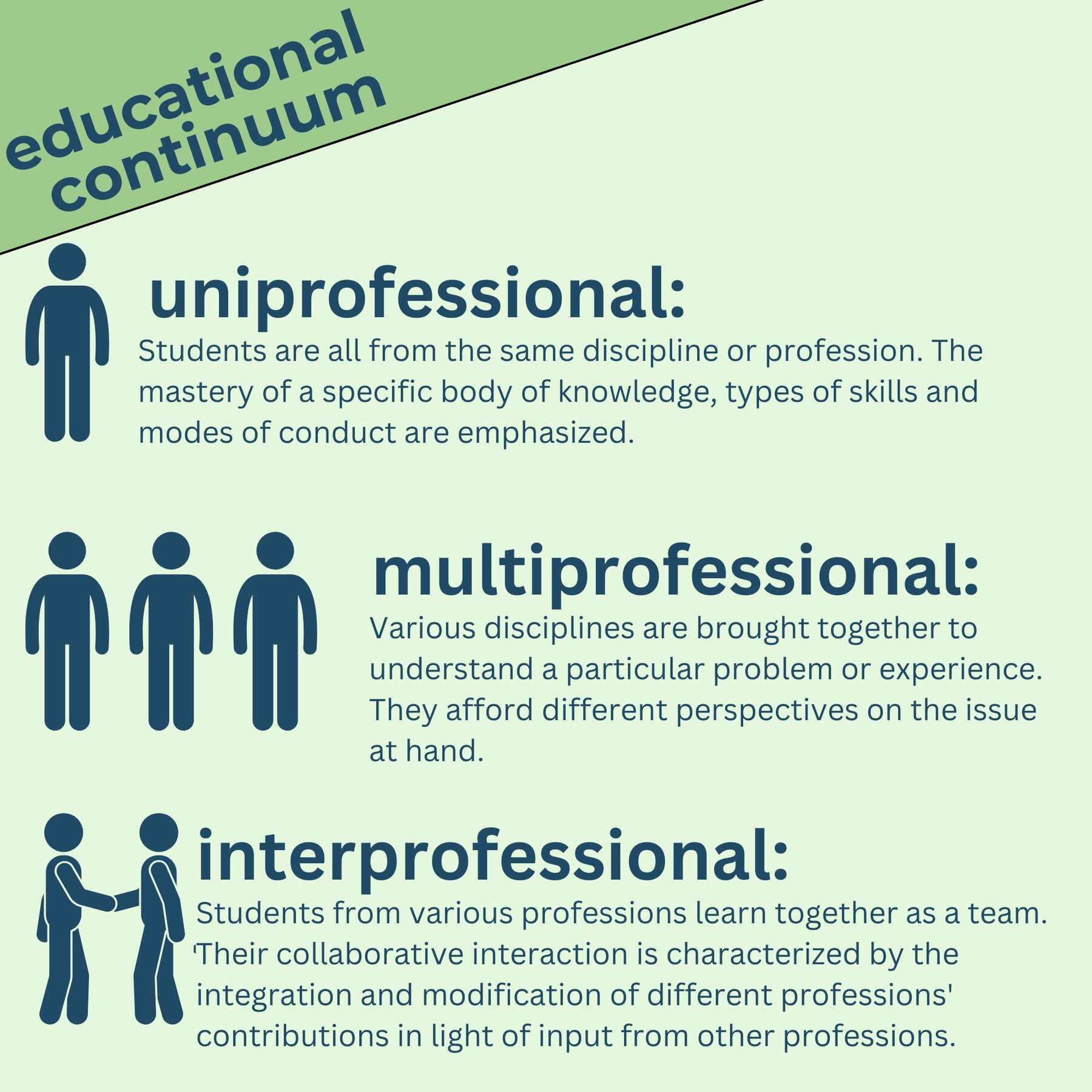Mobile Menu
- About Us
- Curriculum
- Professional Development
- Research & Innovation
- Community & Partnerships
- Tools & Resources
"Interprofessional education occurs when students from two or more professions learn about, from and with each other to enable effective collaboration and improve health outcomes"
Teamwork in health care is often referred to as Interprofessional Practice. Interprofessional practice results in the collaborative, comprehensive care that our clients/patients value and expect.
The goal of interprofessional education is to prepare health professional students with the knowledge, skills and attitudes necessary for collaborative interprofessional practice.

Think of the following types of education as a continuum. Movement along the continuum is characterized by increasingly complex knowledge and appreciation of professions other than one's own. 1
The hallmark of IPE is the type of cognitive and behavioural change that occurs: participants understand the core principles and concepts of each contributing discipline and are familiar with the basic language and mindsets of the various disciplines. Prior to participating in IPE, students must have basic knowledge and skills related to their own profession.